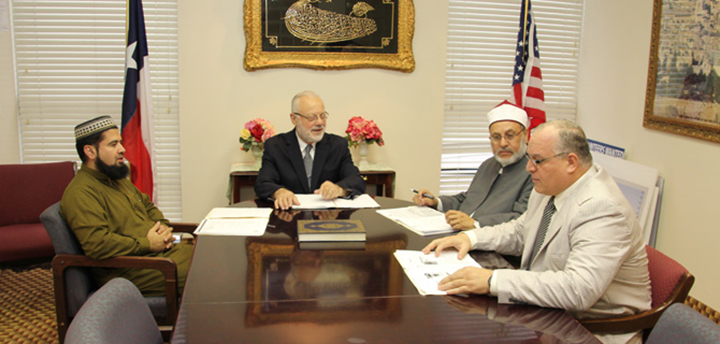
An Islamic group in Texas is declaring itself an authority on settling matters for American Muslims according to the Sharia law as it announced on its website, sparking debate on whether the cultural and religious legal system has a place in the United States today.
"Muslims, like anyone else, are plagued with many issues and conflicts that are in desperate need of resolution," the Islamic Tribunal's website declares. "In order for there to be a healthy and viable community these issues must be addressed in an amicable, just and proper way to the full satisfaction of the community. To allow conflicts to be unresolved is tantamount to leaving an open wound and if unchecked will wreck the peace and tranquility of the community as a whole."
Sharia law is the set of legal guidelines that all Muslim people must follow, including specific laws on crime, politics, economics, sexual intercourse, hygiene, diet, prayer, etiquette, and fasting. The set of laws are thought to be created by the Prophet Muhammad and written in the Quran.
Currently, Sharia law is practiced in most Middle Eastern and African countries with parts of several other global nations implementing the set of rules on an individual basis. Canada, the United States, the United Kingdom, and many European countries have resisted the infiltration of Sharia law despite the nature of the law pushing for world dominance.
"It is the intention of erecting this institution in order to set a precedence that will be emulated and duplicated throughout the country," the group says.
The Dallas-based non-profit Islamic Tribunal is made up of four attorneys (three of which are Islamic Imams) who practice in the areas of divorce law, family law, business law, and real estate litigation. There is currently no inclusion of criminal law by the group, and as the Christian Examiner points out, "Even the Ten Commandments of Christianity do not identify specific legal punishments for disobedience. In fact, the fifth, 'honor thy father and thy mother,' actually promises a reward of long life if obeyed."
The Tribunal acknowledges that criminal cases must still obey the law of the land and that the institution of Sharia law by the team is meant for moral and ethical consultation. "Stoning adulterers, cutting of the hands, polyandry and the like (all can be traced in the relevant literature and can be explained in their Islamic legal mentality and rational context in fairness and justice), are mainly a part of Islamic Criminal Law," the group says. "In fact criminal law within Islam only makes up a fraction of the Shari'ah. It is unscholarly and unfair to generalize that type of understanding, that is Criminal Law, to compromise the whole of Islamic law if we stick to speaking in technical terms."
But the group does cite what it calls a "costly" and "ineffective" judicial system in America, and how they hope to work together with federal and state law to establish proper rights for Muslims in America. "Discontent with the legal system leads many Muslims in America to postpone justice in this world and opt for an audience on the Day of Judgment."
But ultimately, the tribunal hopes to use its consultation as a way to show Muslims and non-Muslims the proposed benefits of the laws of Islam. "With the phenomenal growth of our institutions it is obvious that American Muslims need to work together for a common goal, helping each other for the sake of Allah SWT and show non-Muslim communities that we are here in this country to spread peace and love," the site mentions.














